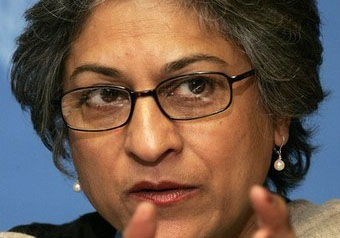
Feb 12, 2018 | News
The ICJ mourns the loss of its former Commissioner, Executive Committee Member and Honorary Member, Asma Jahangir, who was at the frontline of the struggle for the rule of law and human rights in Pakistan and around the world.
Ms. Jahangir died of cardiac arrest on Sunday, 11 February, in Lahore, Pakistan. She was 66.
“The ICJ benefited immeasurably from Asma Jahangir’s contribution and leadership. She was a giant of the human rights movement, dedicated to defending the rule of law and fighting for the rights of everyone – including her fiercest detractors,” said Sam Zarifi, ICJ’s Secretary General.
Asma Jahangir was elected to the ICJ in 1998, and went on to serve on the organization’s Executive Committee until the end of her term.
She continued to work closely with the ICJ as an Honorary Member.
Asma Jahangir started her journey as a human rights defender as a petitioner is a case challenging the military dictatorship of Yahya Khan. She was only 19 at the time.
She continued throughout her life to be an outspoken critic of military rule and abuses in Pakistan and at the forefront of the struggle for human rights and the rule of law in the country.
In 1987 she co-founded the Human Rights Commission of Pakistan, which remains one of the oldest and most preeminent human rights organizations in the region.
Asma Jahangir was a senior advocate of the Supreme Court with a legal career spanning nearly forty years.
In 1987, along with other women lawyers, she established the first legal aid cell in the country for free legal representation to women, children, bonded laborers and religious minorities.
She also made lasting contribution to the human rights globally, and served as a UN Special Rapporteur for three different mandates: Extrajudicial, summary or arbitrary executions (1998 to 2004); freedom of religion or belief (2004 to 2010); and the situation of human rights in Iran (2016 – 2018).
In the course of her work as a human rights activist, she was repeatedly threatened, put under house arrest and even imprisoned. However, these attacks did not deter her from her commitment to human rights.
“Asma Jahangir’s brave, powerful voice for human rights and dignity has fallen silent much too soon. We will miss her and strive to live up to her example,” said Zarifi.
Last year, Asma Jahangir participated in ICJ’s Women profiles video series:
Asma Jahangir profile
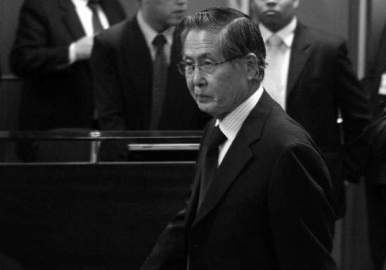
Feb 9, 2018 | Artículos, Noticias
Hoy la CIJ y varias otras organizaciones presentaron un amicus curiae a la Corte Interamericana de Derechos Humanos (Corte IDH) en el contexto del proceso de supervisión de cumplimiento de las sentencias dictadas en los casos Barrios Altos y La Cantuta.
Esta supervisión se solicitó a causa de la Resolución Suprema N° 281-2017-JUS del 24 de diciembre de 2017, que concede al ex presidente Alberto Fujimori “el indulto y derecho de gracia por razones humanitarias”.
El indulto otorgado tiene como efecto que el ex mandatario se encuentre actualmente en libertad, a pesar de haber sido condenado a 25 años de prisión por la comisión de graves violaciones de derechos humanos, creando asi un incentivo a la impunidad en el país.
El amicus curiae sostiene que el indulto, tal como ha sido otorgado, es contrario a obligaciones internacionales asumidas por el Perú y, en concreto, desacata lo establecido por la Corte IDH en las sentencias de los casos Barrios Altos y La Cantuta.
El escrito plantea que la potestad presidencial para conferir indultos en el Perú debe ser ejercida en el marco de un Estado Constitucional y Democrático de Derecho.
Si bien el indulto es una atribución presidencial discrecional, ésta no debe ser ejercida arbitrariamente. Se trata de una institución que tiene límites y que debe ejercerse de manera excepcional, siguiendo las normas internas sobre la materia.
El indulto no procede en casos de graves violaciones a los derechos humanos o crímenes de lesa humanidad, como lo son Barrios Altos y La Cantuta.
Los términos en que fue concedido incumple la garantía de necesidad frente a otras medidas que pudiesen preservar la dignidad y la salud del señor Fujimori.
Amiciconcluye que el indulto y gracia otorgados a Alberto Fujimori son contrarios a las obligaciones internacionales en materia de derechos humanos asumidas por el Perú. Se pide a la Corte Interamericana ordenar al Estado dejar sin efectos la Resolución Suprema N° 281-2017-JUS.
Las otras organizaciones que presentaron el amicus curiae con la CIJ son Abogados sin Fronteras, la Clínica de Derechos Humanos de la Universidad de Ottawa, la Clínica de Derechos Humanos de la Universidad de Quebec en Montreal, la Fundación para el Debido Proceso, y el Instituto de Democracia y Derechos Humanos de la Pontificia Universidad Católica del Perú (IDEHPUCP).
Peru-Amicus Curiae CorteIDH Casos Barrios Altos y La Cantuta-Advocacy-Legal submission-2018-SPA (Amicus Curiae en PDF)
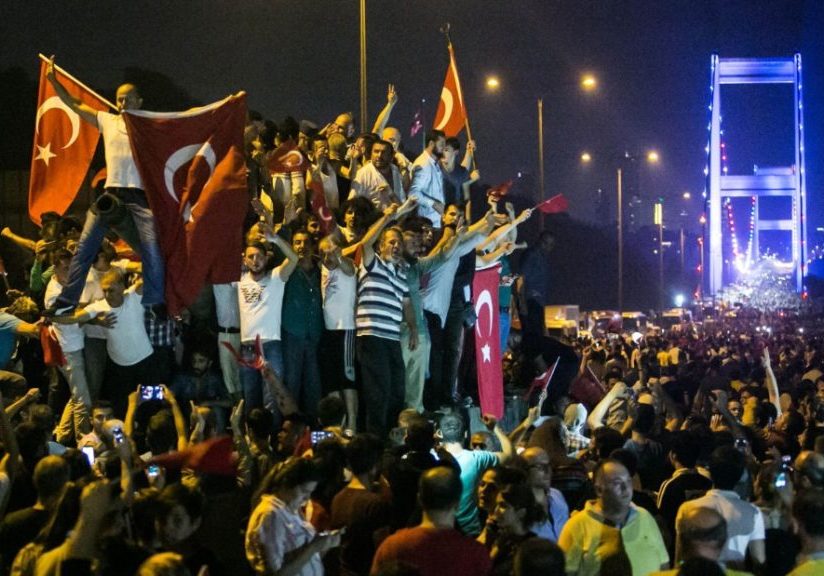
Jan 26, 2018
An opinion piece by Massimo Frigo, Senior Legal Adviser, ICJ Europe Programme.
A legal dispute between first instance ordinary courts and the Constitutional Court in Turkey is leading the country into a major constitutional conflict and severely limiting the chance of people in Turkey to access effective remedies for human rights violations.
On 11 January, two criminal courts in Istanbul refused to apply the rulings of the Constitutional Court ordering a remedy for breaches of the right to liberty and freedom of expression of two journalists, Mehmet Altan and Şahin Alpay, detained on remand while under trial for terrorism offences and alleged links to the attempted coup of 15 July 2016.
The full piece and legal analysis can be read on the Opinio Juris blog.
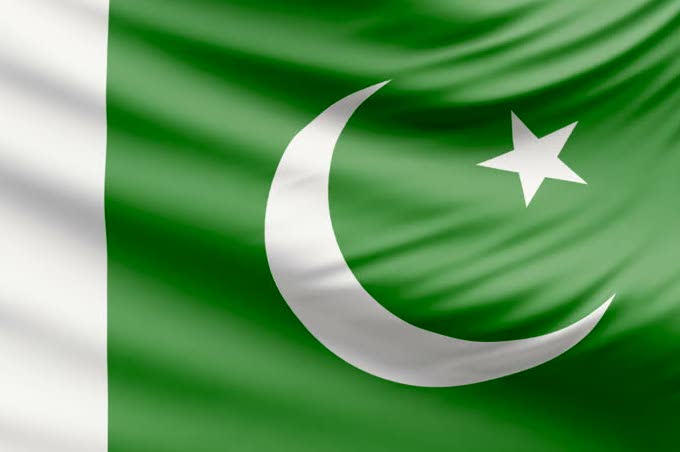
Jan 9, 2018 | News
The ICJ today called on the Government of Pakistan to take immediate measures against the increasing practice of enforced disappearances in the country.
A significant number of recent victims were said to be human rights defenders and political activists.
The ICJ highlighted the particular case of Raza Mahmood Khan. Raza, a human rights defender and peace activist, has been “missing” since 2 December 2017 after he organized a public event in Lahore to discuss recent political developments, including religious extremism and the role of state institutions.
Raza is known for his work on human rights, building inter-faith harmony, and promoting peace and tolerance between Pakistan and India. His family and friends have appealed to the police and the courts to trace him, but more than a month since his alleged “disappearance”, his whereabouts are still unknown.
“Many of the victims of enforced disappearances in Pakistan have been activists like Raza, which indicates the shrinking space for activism and dissent in the country,” said Frederick Rawski, ICJ’s Asia Director.
Given that circumstances in which Raza went “missing” are very similar to other cases of enforced disappearance reported recently, the ICJ called on Pakistani authorities to conduct a prompt, impartial, and thorough investigation to determine his fate and whereabouts and hold perpetrators criminally responsible.
“It is not enough for the authorities to deny knowledge of the fate or whereabouts of disappeared people. Are they properly questioning eyewitnesses to abductions? Are they looking for forensic evidence or electronic data from mobile phones? There are clear steps that authorities can and should take to investigate such crimes, and they must act immediately to establish the truth about these cases,” added Rawski.
Pakistan’s Supreme Court has, in multiple judgments, acknowledged the role of security and intelligence agencies in enforced disappearances and secret detentions, holding that the practice constitutes a violation of the “fundamental rights” recognized by the Constitution of Pakistan as well as international human rights law.
The State Commission of Inquiry on Enforced Disappearances has more than 1500 unresolved cases of enforced disappearances as of January 2018.
In 2017 alone, the Commission received 868 reports of alleged enforced disappearances – one of the highest since the Commission’s establishment in 2011. The UN Working Group on Enforced or Involuntary Disappearances also has more than 700 pending cases from Pakistan.
“Despite hundreds, if not thousands, of cases of enforced disappearance reported from across Pakistan, not a single perpetrator of the crime has been brought to justice,” added Rawski. “Not only does this impunity deny truth and justice to victims of the crime, it is also eroding the rule of law and emboldening perpetrators of human rights violations.”
The UN Working Group on Enforced or Involuntary Disappearances (WGEID) has on a number of occasions expressed concern about lack of implementation of the recommendations it made following a country visit to Pakistan in 2012, citing among other things continuing impunity arising from failure to diligently investigate allegations.
The UN Human Rights Committee also, in its review of Pakistan’s implementation of the International Covenant on Civil and Political Rights (ICCPR), noted with concern “the high incidence of enforced disappearances and extrajudicial killings allegedly perpetrated by the police and military and security forces.”
Pakistan must ensure all persons held in secret or arbitrary detention are immediately released or charged with a recognizable criminal offence and brought promptly before a competent, independent and impartial tribunal for a trial that meets international standards.
The ICJ called on Pakistan to become a party to the International Convention for the Protection of All Persons from Enforced Disappearance; recognize enforced disappearance as a distinct, autonomous offence; and hold perpetrators of enforced disappearance, including military and intelligence personnel, to account, through fair trials before civilian courts.
Contacts
Frederick Rawski, ICJ Asia Pacific Regional Director, t: +66 64 478 1121, e: frederick.rawski(a)icj.org
Reema Omer, ICJ International Legal Adviser for Pakistan (London), t: +447889565691; e: reema.omer(a)icj.org
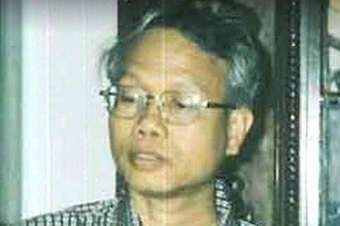
Dec 15, 2017
On the fifth anniversary of the enforced disappearance of the Lao civil society leader, the ICJ and 121 other organizations, express outrage at the government’s failure to investigate Sombath Somphone’s disappearance and return him to his family.
To read the letter:
Lao PDR-Sombath 5 years-Advocacy-open letter-2017-ENG (English version, in PDF)
Lao PDR-Sombath 5 years-Advocacy-open letter-2017-LAO (Lao version, in PDF)









